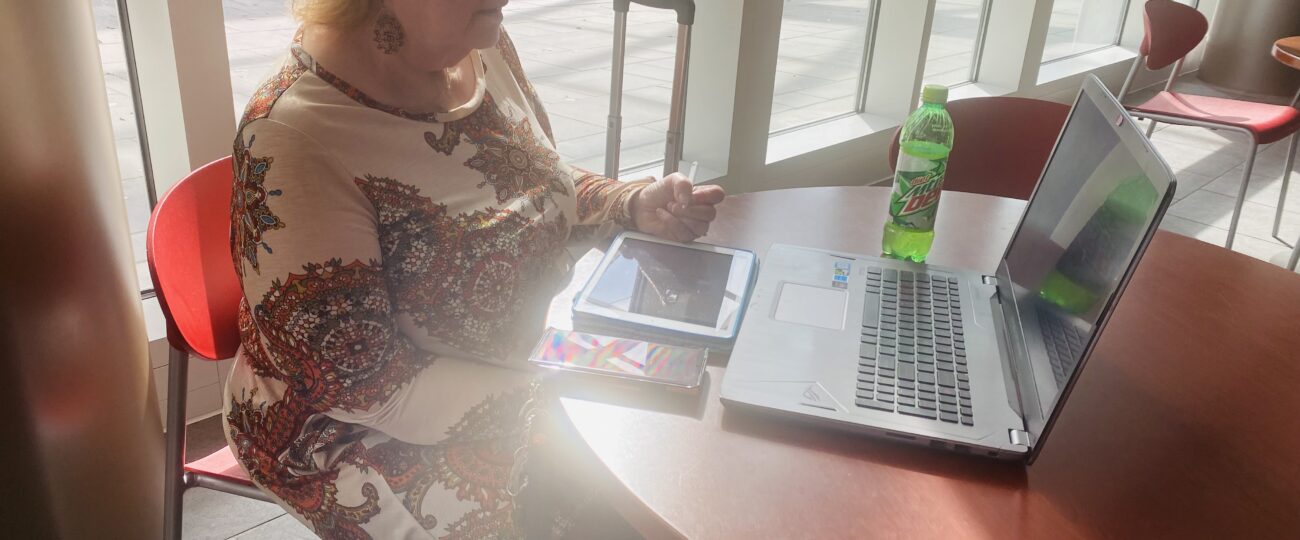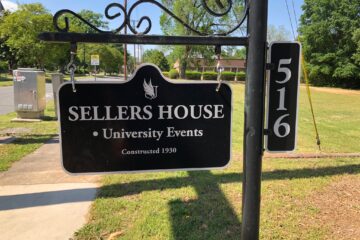In South Carolina, senior citizens are allowed to attend university free of charge with the exception of paying for class fees and textbooks themselves.
Gloria Jones, former director of the composition program and current student advocate, a position she pitched two years ago after retiring from Winthrop, works with students on academic success and also helps senior citizen students find courses.
“I retired two years ago, in March, and decided that I wanted to do what I had been doing previously, which was to work with students who were having some academic difficulties because there were some outside influences that were impacting their academic progress,” Jones said.
“And part of that also is, because there was nobody else who was dedicated to working with senior citizens. I now work with them if they need additional help.”
While the process of being approved as a senior citizen student is fairly simple, many of the requirements are similar to any undergrad student.
“They have to be a resident of South Carolina, they do not have to have a previous college degree or anything. The process is that they must apply to Winthrop. And they must provide us with their latest transcript, whether it’s a high school transcript or a college transcript. They either apply as a graduate, or as a degree-seeking or non-degree seeking undergraduate, or as an audit student.” Jones said. “They cannot register for any class until the first day of classes so that our regular students are ensured that they have a space. So if there’s a space in a class, they may register for that class.”
Jones sees that senior citizens having this opportunity builds a bond between the community to have a variety of educational opportunities.
“It builds connections with the university and the community. Being able to see both sides of the coins builds the Winthrop experience.” Jones said.
Levata Evans, who is a 64-year-old student, is currently in her third year at Winthrop as a graphic design major. A degree wasn’t required for the career she had at the time.
“I was fortunate enough that I came from an era where you didn’t have to have a degree to get into business. And I just worked my way up and ended up in finance. I work for a very large finance company.” Evans said. “But I always wanted a college degree. So when I retired, I needed something to do. So I thought, ‘Okay, I’ll get my degree, and then actually do what I want to do,’ not what I ended up doing.”
Going to Winthrop is very convenient for Evans for the free tuition and being close to family.
“I have lived in Rock Hill for 35 years. So that’s one of the reasons I chose Winthrop. And also, it’s close to the house, I can still spend time with my children.” Evans said. “But I really came now, because the cost of college is expensive. And once I knew that there were these programs, I thought, well, I’ll just wait till I retire to go to college, instead of worrying about student loans.”
Evans feels very welcomed by all students who go to Winthrop, whether they are closer to her age or students that have come straight from high school.
“As a senior citizen student, I’m not treated differently when I am incorporated into the classes. The students, whether they be fresh out of high school or whether they are attending class and working. They both integrate seamlessly and that diversity is really beneficial to a person.” Evans said.
Jane Smith, another senior citizen, is a 73-year-old woman who is a non-degree seeking student and a former Winthrop professor. She taught courses such as CRTW and was the writing center director for about 22 years. Teaching at Winthrop factored into her decision to take some courses here as well.
“Winthrop was an easy choice because I taught here for 32 years. I wanted to take classes for lots of reasons. There were so many classes I never got to take in the past, and also, I wanted to do something that would be challenging and make me stretch my mind.” Smith said. “I have always loved being in the classroom, listening to student opinions, and this gave me a chance to do that without having to grade the papers!”
Currently, since Smith is just taking classes out of enjoyment, she is only taking one course this semester.
“I’m just taking Dr. Hiner’s class on British Gothic. I started taking one class a semester when I retired in the Spring of 2018. My first class was in the fall of 2018.” Smith said. “The classes also make me think; I’m already planning my first paper for Dr. Hiner, even though she told me I don’t have to write one.”
Although Smith has suspected some students may be curious about whether she’s faculty or a student, she has always known she is welcomed and belongs at Winthrop.
“I think sometimes students on campus assume I am faculty, but no one has ever asked me about that outright. I’m not really sure about how the students in classes feel. Last semester in Dr. Cothran’s class, there were several students training to be tutors and they wanted to ask me questions about how tutoring had helped the tutors I worked with.” Smith said. “I think the professor’s attitude about having me in the class sort of makes the students comfortable. Dr. Belk grilled me just like he did everyone else, so that was fun—seriously. I was just one of the students.”




